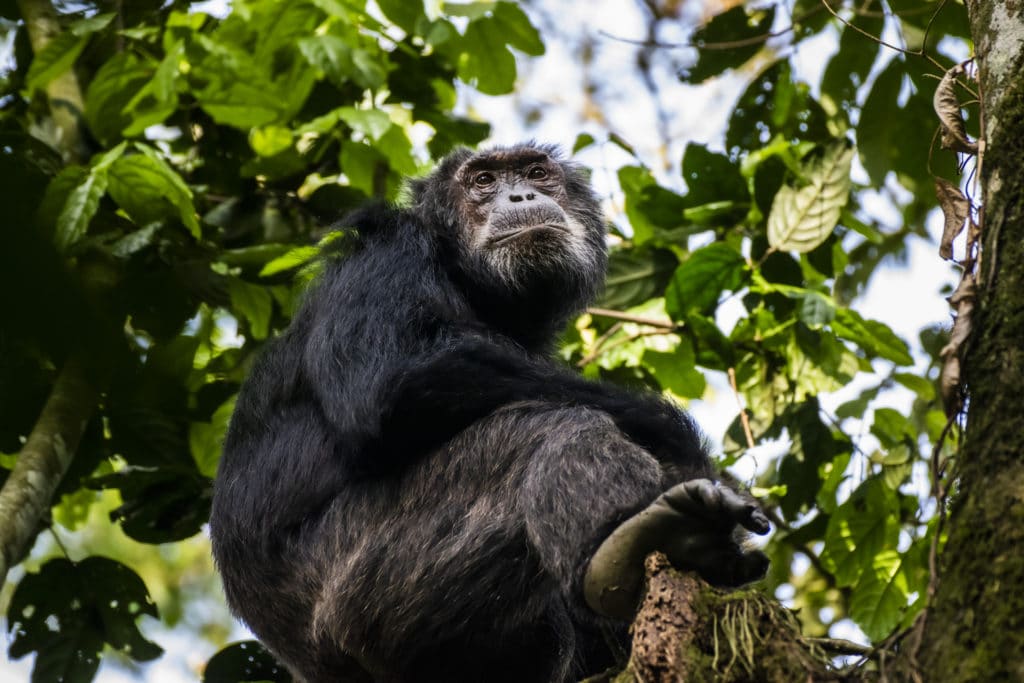Chimpanzees are an intelligent and unique species that share many traits with humans. They have remarkable memories, can make and use tools, and exhibit a range of emotions. Chimpanzees communicate with facial expressions and vocalizations, and they live in complex social structures. They are capable of learning sign language and exhibit altruistic behavior towards one another. Unfortunately, they are endangered due to habitat loss and poaching. It is crucial to protect their habitats and ensure their survival for future generations. These 10 interesting facts about chimpanzees are just a glimpse into the world of these fascinating animals.
10 Interesting Facts About Chimpanzees
Chimpanzees are one of the closest relatives to humans, sharing almost 99% of their DNA. They are highly intelligent and exhibit a vast array of unique behaviors. In this article, we will discuss ten interesting facts about chimpanzees that will leave you amazed!
1. They Have a Remarkable Memory
Chimpanzees have an impressive memory, and they can remember the faces of other chimpanzees they haven’t seen in years. They can also recall which fruits ripen during which season in different parts of the forest. Chimpanzees’ memory helps them survive in their natural habitat.
2. They Are Capable of Making and Using Tools
Chimpanzees are known for their ability to make and use tools, which is something that was once believed to be exclusive to humans. Chimpanzees use sticks to fish for termites and use rocks to crack open nuts. They can also use a branch to extract honey from bees’ nests.
3. They Have Unique Personalities
Just like humans, chimpanzees have different personality traits. Some of them are shy, while others are bold and confident. They may also exhibit aggression, empathy, and altruism. Moreover, studies have shown that chimpanzees develop enduring friendships with individuals who share similar social styles.
4. They Experience Emotions
Chimpanzees have a range of emotions, including happiness, sadness, anger, and fear. Interestingly, studies have shown that chimpanzees can recognize themselves in mirrors, indicating that they have an awareness of themselves as individuals.
5. They Use Facial Expressions to Communicate
Chimpanzees use various facial expressions to communicate their feelings, such as excitement, aggression, and curiosity. They also use vocalizations like screams, grunts, and pant hoots to convey different meanings.
6. They Are Social Animals
Chimpanzees are highly social animals, and they live in large communities. They have complex social structures, and their relationships with each other can be quite intricate. Moreover, female chimpanzees have been observed to share mothering duties, which helps them raise their offspring successfully.
7. They Can Learn Sign Language
Chimpanzees are intelligent animals that are capable of learning sign language. Several research studies have been conducted where chimpanzees have learned to communicate with humans using sign language.
8. They Have a Strong Sense of Community
Chimpanzees have a strong sense of community, and they show empathy towards their fellow chimpanzees. When a member of the group is sick or injured, others will offer support and help. Such behavior is similar to how humans interact with each other.
9. They Exhibit Altruistic Behavior
Chimpanzees also exhibit altruistic behavior, which means they do things to help others without expecting anything in return. For instance, a chimpanzee may share food with another who is in need or help another chimpanzee get out of a dangerous situation.
10. They Are Endangered
Chimpanzees are listed as endangered species by the International Union for Conservation of Nature (IUCN) due to loss of habitat and poaching. It is estimated that their population has decreased by around 90% over the past few decades.
Conclusion
As you can see, chimpanzees are fascinating animals that exhibit various unique behaviors. They share many traits with humans, including intelligence, emotions, and social complexity. It is crucial to protect and preserve their habitats to ensure their survival for future generations.
